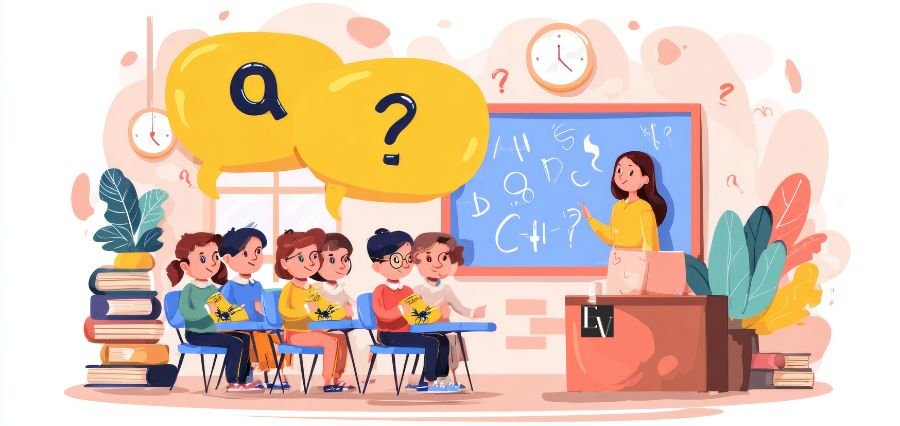By Dr. Anju Chawla,
Founder, EQ Advantage, PCC (ICF),
International Award-Winning Emotional Wellness & Life Coach
There’s a generational conversation echoing in boardrooms, campuses, homes, and digital spaces: “Who are Gen Z?” Are they too sensitive or deeply aware? Are they distracted or digitally agile? Entitled or emotionally expressive? The truth lies not in labels but in listening.
As an Emotional Wellness and Life Coach who has worked across cultures and generations, I assert this with confidence: Gen Z is not here to fit into our categories. They’re here to create conversations. They seek engagement, not evaluation. Meaning, not metrics. And most importantly, they resist the boxes we keep building for them.
The Rise of Conscious Individualism
Gen Z grew up with information, climate anxiety, and TikTok all swirling in the same digital breath. But beneath the social media trends and viral aesthetics lies a defining trait: conscious individualism.
Unlike Millennials, who rallied around collectivist causes, Gen Z leans into curated self-definition. But don’t mistake this for isolation. It’s a thoughtful engagement. When a 23-year-old resigns from a high-paying job to start a sustainable thrift business or posts about mental health struggles on LinkedIn, it’s not performative, it’s principled.
Case in Point: Look at Aditi Mayer, a Gen Z climate justice and ethical fashion activist, who brings intersectionality and equity to sustainability conversations. She doesn’t wait for a movement to join; she starts one.
They Question Before They Commit
In my coaching sessions with Gen Z professionals across geographies, from Amsterdam to Bengaluru, I’ve seen a consistent pattern: they question everything.
They don’t see work-life balance as a privilege; it’s non-negotiable. Titles don’t entice them; impact does. They challenge leadership, ask about DEI policies, and don’t flinch when voicing discomfort.
This critical thinking isn’t arrogance; it’s awareness. Gen Z doesn’t want blind loyalty to systems; they want psychological safety and value alignment.
Coaching Insight: This generation responds more to co-creation than control. A coaching approach rooted in Emotional Intelligence, especially Empathy and Social Regulation, goes a long way in nurturing their potential.
Mental Health Is Not a Taboo, It’s a Priority
Unlike generations before, Gen Z doesn’t wear burnout as a badge of honour. They openly speak about therapy, ADHD, anxiety, neurodivergence, and trauma. They normalize what was once stigmatized.
While older generations labelled therapy as a last resort, Gen Z views it as a resource. They want emotional literacy, knowing not just how to feel, but how to manage those feelings effectively.
Contemporary Relevance: During the pandemic, Gen Z’s embrace of mental health apps like Calm, journaling routines, and therapy memes became tools for resilience, not trends.
Don’t Label Their Depth as Fragility
We often hear: “They take things too personally.” But emotional sensitivity is not fragility. It is an evolution. Gen Z reads the room and reads between the lines. They are decoding microaggressions, noticing systemic gaps, and advocating for inclusivity in language and leadership.
From Coaching Lens: Emotional Agility (Susan David’s concept) is a superpower of Gen Z. They shift from self-awareness to action with surprising speed when given the right environment.
Beyond Identity Politics: Redefining Inclusion
Gen Z doesn’t want to be included; they want systems reimagined. They are post-gender, post-race in their lens, not in denial, but in demand for intersectionality. Whether it’s pronouns, representation in media, or political correctness in the workplace, they aren’t ticking boxes. They’re questioning who created the boxes in the first place.
Global Example: Greta Thunberg may represent Gen Z activism, but so do local voices like Nzambi Matee in Kenya, who is turning plastic waste into bricks. Their causes are different, but their courage to act is identical.
Drawing an Analogy: From Rebels to Reformers
To understand Gen Z better, let’s look back at the Baby Boomer generation, the youth of the 1960s. They were branded as rebellious, anti-establishment, and idealistic. They protested wars, questioned norms, championed civil rights, and reshaped culture with music, art, and revolution.
Sound familiar?
Just like Boomers weren’t understood in their time, Gen Z is now challenging inherited systems with the same fire, but with new tools. Digital activism has replaced sit-ins. Cancel culture is the modern boycott. From Woodstock to webcasts, generations evolve, but the hunger for change remains the same.
The difference? Boomers had to fight for a voice. Gen Z is born with one, and they’re choosing to use it with mindfulness.
Point of Discussion:
What if Gen Z is not a problem to be solved, but a mirror we must look into?
Ask yourself:
- What fears do we project onto the younger generation that belong to our past?
- Are we creating space for their questions, or are we too busy defending our answers?
- How can emotional intelligence across generations help us bridge the empathy gap instead of widening the generational divide?
So, How Do We Engage Gen Z?
- Lead with Authenticity, Not Authority. Gen Z respects real over right.
- Offer Psychological Safety. Let them question, challenge, and explore.
- Coach, Don’t Command. They flourish in partnerships, not hierarchies.
- Invest in Emotional Literacy. Equip them with tools for self-regulation, not just performance metrics.
Why the World Must Understand, Not Label, Gen Z
- With Cited Insights from Global Research and Thought Leaders
Across continents and cultures, the instinct to categorize generations is strong, perhaps because it simplifies complexity. But to reduce Gen Z to stereotypes is not just inaccurate, it’s counterproductive. Here’s why leaders, educators, parents, and institutions around the world must shift from judgment to genuine curiosity:
- Digitally Native ≠ Distracted: It Means Designed for the Future
Gen Z is the first generation born into a fully digital world. Unlike Gen X, who adapted to technology or Millennials who rode its wave, Gen Z sees tech not as an add-on, but as an extension of self. Their fluency in digital navigation makes them natural problem solvers in a fast-evolving world.
Source: Pew Research Center (2019) defines Gen Z as “true digital natives” who “grew up with smartphones and social media from a very young age,” setting them apart in how they consume and engage with information.
Source link
Insight: A Dell Technologies report (2018) predicts that 85% of jobs in 2030 haven’t been invented yet, and Gen Z’s adaptability to AI, cloud, and tech ecosystems uniquely equips them to lead that future.
Source link
- Emotionally Fluent = Resilient and Empathetic
Gen Z is rewriting emotional language in work, relationships, and education. They prioritize mental health, boundaries, diversity, and psychological safety, not because they’re fragile, but because they’re emotionally literate.
Source: The American Psychological Association (2020) found Gen Z to be “more likely than other generations to report mental health challenges, but also more willing to seek therapy and talk openly about it.”
Thought Leader: Brené Brown, in her work on vulnerability and leadership, argues: “Vulnerability is not weakness; it’s our most accurate measure of courage.” Gen Z embodies this courage.
Brené Brown’s TED Talk
- Purpose-Driven, Not Paycheck-Obsessed
Gen Z workers demand purpose, not just pay. They’re not disengaged, they’re discerning. They value impact over hierarchy and expect brands and employers to take ethical stances.
Source: A Deloitte Global Millennial and Gen Z Survey (2023) found that 46% of Gen Z respondents said they feel stressed all or most of the time, yet they’re twice as likely as previous generations to prioritize purpose and well-being over salary.
Source link
Example: Patagonia and Ben & Jerry’s brands with a strong social mission rank highly among Gen Z for employment and loyalty, showing how values drive engagement.
- The Truly Transitioned Generation
Gen Z is the bridge generation after Gen X, a pivotal transition from industrial mindsets to regenerative, human-centric thinking. They’ve lived through:
Global recession (2008)
Climate emergency
A global pandemic during formative years
AI emergence and the great resignation
Source: McKinsey & Company (2021) describes Gen Z as the “first generation to prioritize holistic value creation over pure growth,” shaping how we define success in the 21st century.
Globally Connected, Locally Invested
Gen Z may live on global apps, but they are rooted in local realities. They care deeply about social justice, sustainability, and equity, not only in Western nations but in emerging economies where grassroots activism is reshaping culture.
Example: 24-year-old Nzambi Matee from Kenya, who turns plastic waste into construction bricks, and Greta Thunberg, who sparked a global climate strike movement, show how Gen Z channels global consciousness into local action.
Nzambi Matee’s UN Recognition
Point of Reflection for Older Generations
Instead of asking “What’s wrong with Gen Z?” ask, “What are they right about that we’re not ready to see?”
Let’s remember:
- Baby Boomers redefined norms through protest and voice.
- Gen X brought adaptability through grit and independence.
- Millennials connected the world and challenged work-life assumptions.
- Gen Z brings consciousness, courage, and clarity.
And that’s exactly what the future demands
Final Thought: A Mirror, Not a Mould
Gen Z is not a category to decode; they are a mirror reflecting where the world needs to grow. As a coach, I’ve seen them embrace change, pain, growth, and ambiguity—often with more grace than those twice their age.
Let us meet them not with definitions, but with curiosity. Not with criticism, but with conversation. Because the future doesn’t belong to those we label—it belongs to those we truly listen to.
Unlabelled. Unboxed. Unapologetic. That is Gen Z.





